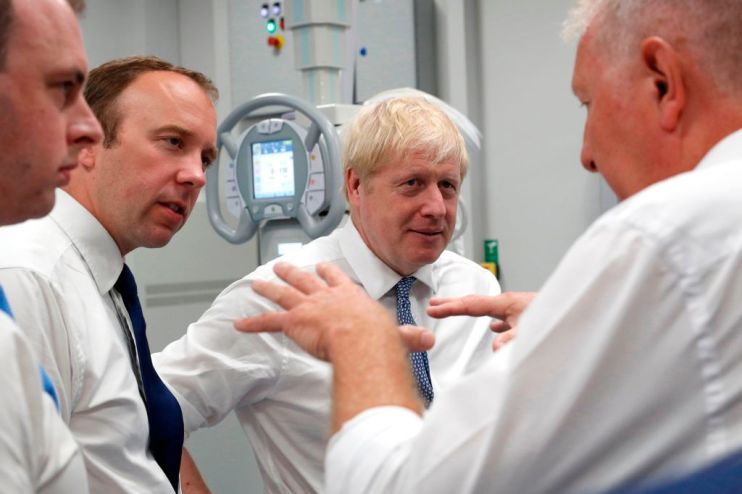NHS to receive £250m funding boost for AI development lab

The NHS is set to receive £250m in funding to boost research into artificial intelligence that could help develop treatments for cancer, dementia and heart disease.
The money will be funnelled into a new National Artificial Intelligence Lab, health secretary Matt Hancock said today.
Read more: Government to announce emergency £2bn NHS funding injection
AI is already being used in some hospitals to help predict cancer survival rates and cut the number of missed appointments.
In addition to medical research, the funding boost could benefit patients by freeing up beds and providing treatment closer to home, the Department of Health said.
Prime Minister Boris Johnson said: “The NHS is revered for the world-class care it provides every day – a treasured institution that showcases the very best of Britain.
“But it is also leading the way in harnessing new technology to treat and prevent, from earlier cancer detection to spotting the deadly signs of dementia.”
“Today’s funding is not just about the future of care though. It will also boost the frontline by automating admin tasks and freeing up staff to care for patients,” he added.
The new lab will sit within NHSX, the new organisation tasked with overseeing the digitisation of the health and care service.
It comes after the Prime Minister pledged a £1.8bn emergency NHS cash boost to improve hospitals and infrastructure, and resolve issues with doctors’ pensions.
Read more: Google-owned AI firm Deepmind suffers ballooning losses as debt mounts
Health secretary Matt Hancock said: “We are on the cusp of a huge health tech revolution that could transform patient experience by making the NHS a truly predictive, preventive and personalised health and care service.
“I am determined to bring the benefits of technology to patients and staff, so the impact of our NHS Long Term Plan and this immediate, multimillion-pound cash injection are felt by all. It’s part of our mission to make the NHS the best it can be.”
Main image credit: Getty